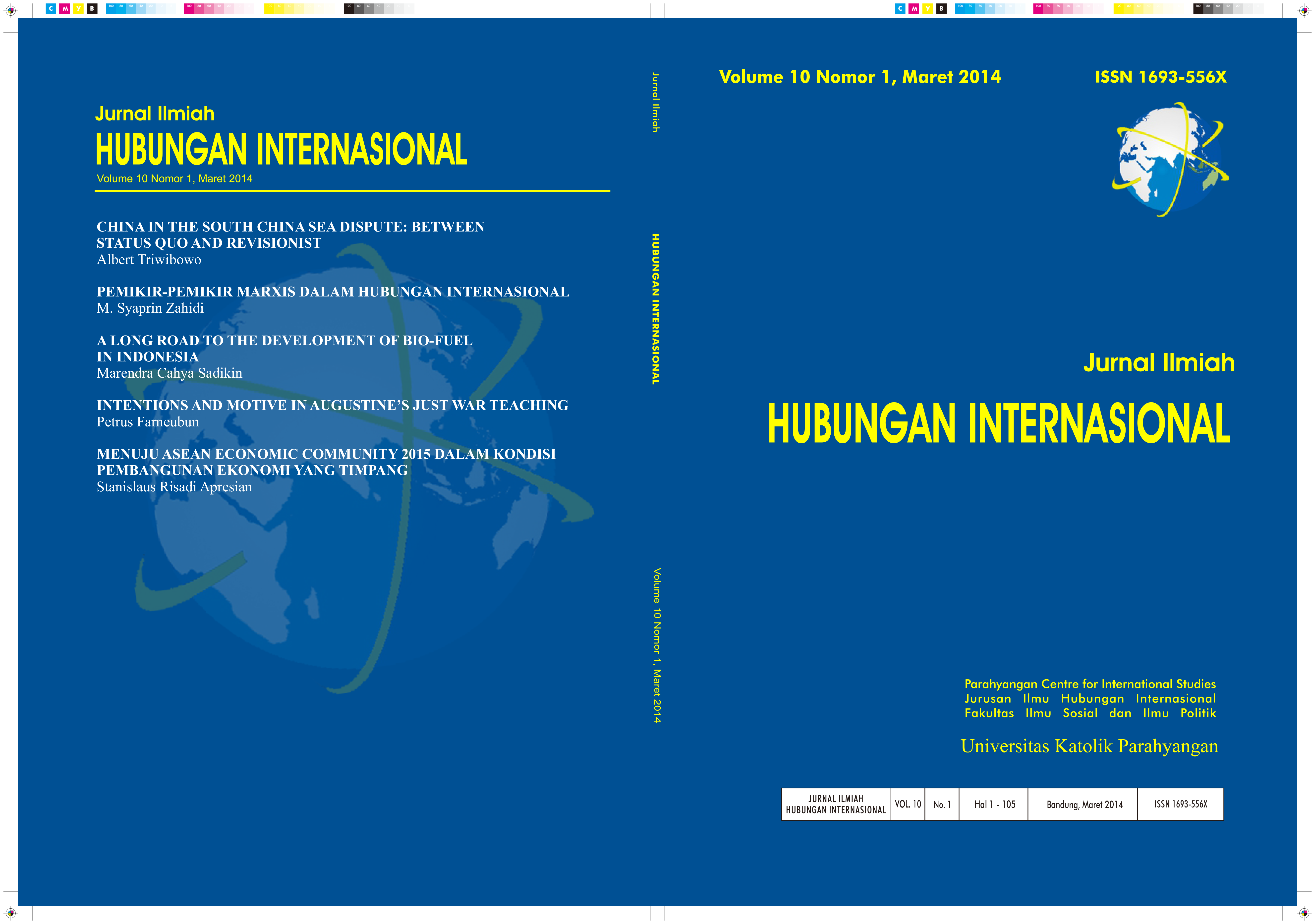China in the South China Sea Dispute: Between Status Quo and Revisionist
DOI:
https://doi.org/10.26593/jihi.v10i1.1049.%25pAbstract
Abstract: The paper is trying to look whether China is a status quo power or a revisionist power in the
South China Sea dispute based on status quo indicator developed by Johnston and perspectives on
conformity towards norms. Meanwhile, this paper argues that China is neither a status quo nor a
revisionist in the South China Sea dispute to the extent of its compliance with the Declaration on the
Conduct of Parties (DoC) in the South China Sea. Using status quo indicators developed by Johnston
and also the perspectives on conformity and violation towards norm, it is found that China's position in
the South China Sea is determined by its interests over the disputed area. A moral dilemma between
expected behaviors in the South China Sea based on China's involvement in the DoC and China's other
self interests. Moreover, China has been conducting activities which fall under both categories, both
status quo and revisionist. China is lying in the middle between status quo and revisionist in the South
China Sea dispute, between an obligatory action that is mandated by the DoC and the desire to act in
order to pursue its self-interest such as its sovereignty claim, natural resources, and geostrategic
position of the disputed territory. China's position in the South China Sea dispute as well as its moral
dilemma in the end could be seen through its mixed and constrained actions indicated by an aggressive
act and a justification related to the aggressive act.
Key words: China, South China Sea Dispute, Status Quo, Revisionist, Norm, DoC.
Downloads
How to Cite
Issue
Section
License
This journal uses Creative Commons license (CC BY). We allow readers to read, download, copy, distribute, print, search, or link to the full texts of its articles and allow readers to use them for any other lawful purpose. The author must be aware that the article copyrights will be fully transferred to Jurnal Ilmiah Hubungan Internasional only if the article is accepted to be published in the journal through signing of the Copyrights Transfer Agreement. Authors are allowed to resend their manuscript to another journal or intentionally withdraw the manuscript only if both parties (JIHI and Authors) have agreed on the related issue. Once the manuscript has been published, authors are allowed to use their published article under Jurnal Ilmiah Hubungan Internasional copyrights.





